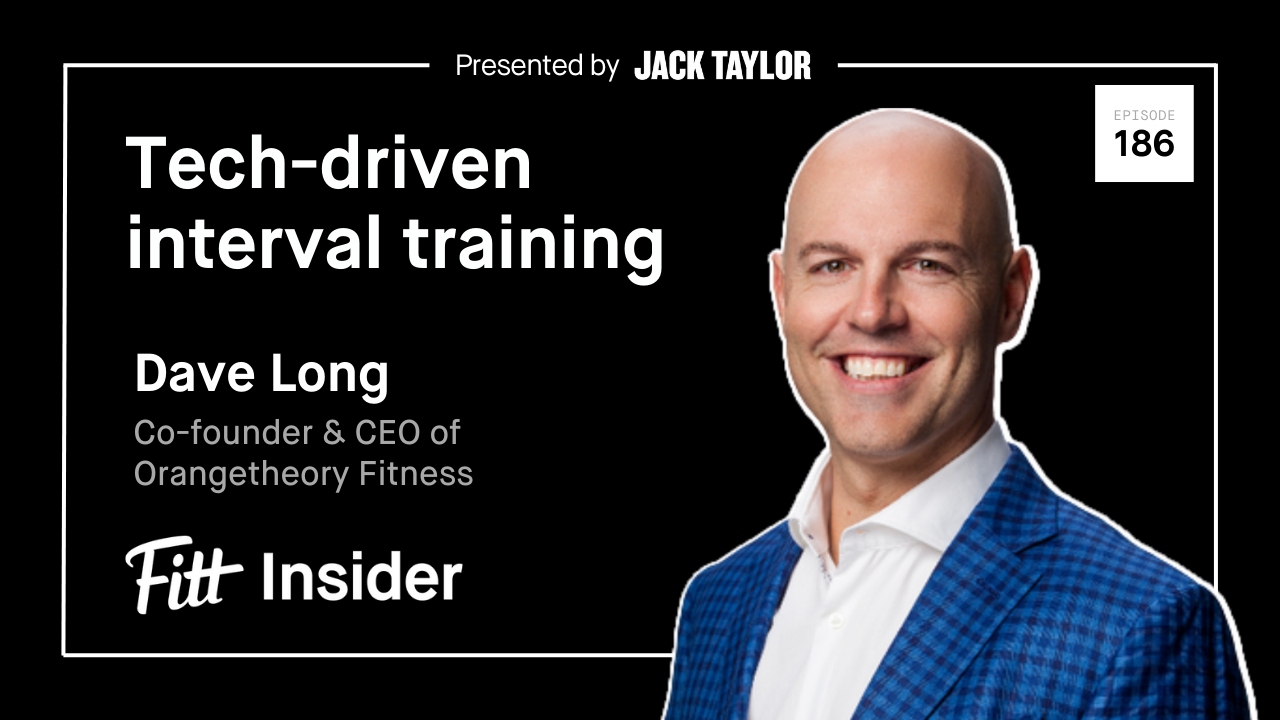Issue No. 233: Trading Places
 Illustration: Courtney Powell
Illustration: Courtney Powell
For better or worse, fitness brands are breaking a sweat.
Golden Goose
In its latest earning report, Peloton teased big changes to come while posting its ninth consecutive quarter of losses.
- Total revenue declined 22% to $748.9M.
- Subscription revenue grew 15% to $424.7M.
- Connected fitness sales sank 45% to $324.1M.
Citing economic uncertainty as it enters a seasonally slow quarter, Peloton expects revenue and subscriptions to drop in FQ4, forecasting its first-ever subscriber decline.
According to CEO Barry McCarthy, the last quarter was his best yet. But, with an all-new app in the works, the next one will be the most telling.
Content is king. While Peloton founder John Foley envisioned a “$1 trillion” smart bike empire, McCarthy downplayed the role of hardware:
“Content is the golden goose… the magic and the glue that binds the community with almost religious fervor is the content and the instructors.”
Betting the company on this belief, Peloton will relaunch its brand and app later this month.
Details are sparse, but the tiered membership is a “mobile gateway,” targeting new audiences and exercise modalities.
Of note, the majority of workouts completed by Peloton members in the past quarter were non-cycling activities—and 38% of workouts didn’t use any hardware—signaling significant room to grow beyond the bike.
Price is right. Growing its total addressable market per McCarthy’s “good, better, best” strategy, the company sees its app, rental program, and refurbished equipment as lower-cost entry points into its ecosystem — but will maintain the integrated hardware experience as the best/most expensive offering.
TBD. A sound plan in theory, Peloton has to prove that the math checks out, driving acquisition costs down while keeping members paying over the long run.
Bulking Up
While Peloton plots its next move, brick-and-mortar brands are scaling up.
- In March of this year, gym visits were up more than 12% YoY, per Placer.ai
- Visits to major US gyms grew 16% from Q1 ’19 (pre-pandemic) to Q1 ’23, via Earnest Analytics.
And, among publicly traded fitness companies, recent quarterly earnings point to continued growth.
- Xponential Fitness grew revenue by 40% in Q1 ’23, reaching 665K members and 2,756 global studios.
- Life Time increased revenue by 30%, attracting 764K members while raising prices and enrollment fees.
- Planet Fitness surpassed 18M members, with 50% of locations at or above 2019 membership levels.
An outlier, F45 Training delayed its financial filings after last year’s near-collapse prompted restructuring, including hiring a new CEO.
Elsewhere… privately held companies are also pushing the pace.
Gaining ground, Crunch Fitness increased membership by 60% since the pandemic’s onset, opening 100 new clubs and selling 300 franchises.
Riding the Pilates boom, [solidcore] recently opened its 100th location. Giving chase, PVOLVE plans to open eight new studios this year.
On trend, as strength training surges, Self Esteem Brands-owned Anytime Fitness saw a 79% increase in coaching and personal training across its 5K+ clubs, while its HIIT studio Basecamp has 30+ openings in the pipeline.
And, as you’ll hear in today’s podcast, with demand among exercisers and franchisees ticking up, Orangetheory Fitness is getting back into growth mode, with the goal of reaching 5K global locations.
Looking ahead: A stark contrast to recent years, in-person fitness has momentum on its side as connected equipment makers are forced to adapt. A win for exercise seekers, the hope is that more options spell more movement. But, with recession fears looming, expansion plans could sputter if discretionary spending wanes.

Orangetheory Fitness co-founder & CEO Dave Long discusses the tech-driven studio’s growth strategy.
We also cover: personalizing workouts and prescribing movement as medicine.
Listen to today’s episode here
💸 Oura buys digital identity startup Proxy
In its first-ever acquisition, the smart ring maker is pushing beyond health.
Need to know. Proxy’s biometric identity tech syncs with smartphones and wearables to eliminate keys, cards, badges, and passwords.
The all-equity deal valued Proxy at $165M, according to Bloomberg, with the startup’s founders and team being retained.
Of note, Proxy previously acquired smart ring brand Motiv and its patent portfolio, all of which now belong to Oura.
Smarter rings. According to Oura CEO Tom Hale, the move strengthens the company’s healthcare ambitions while paving the way for expansion.
Protecting member privacy, Hale said Proxy enables “secure, portable, encrypted identity and personal data — powered by a wearable that knows the wearer.”
Expanding beyond sleep and activity alone, Hale signaled Oura’s plan to enter “payments, access, security, identity, and beyond.”
Told ya so. Back in 2021, we detailed Proxy, Motiv, and Oura’s links to Square, including Jack Dorsey’s investment, writing that the company would likely enter payments.
At the time, then-CEO Harpreet Singh Rai said the sector held potential. A few years on, and under a new regime, the effort is underway.
Punchline: As the health wearables space grows more crowded, the smart ring wars are heating up. Instead of competing to track steps or sleep, Oura hopes marrying our lives to its ring keeps the device on our finger and our monthly subscription active.
☀️ All activity is good, but outdoor exercise is better
According to a new study, physical activity done in nature is more beneficial than completing the same exercise inside.
Move it. Using EEG to measure cognitive performance before and after a 15-minute walk, researchers saw clear gains among those in nature vs. those indoors:
- Improvements in reaction time more than doubled.
- Attention scores were far greater compared to the control group.
- Indexed task performance increased for the outdoor group but not indoors.
Advocating for a common-sense approach to moving more, the study’s authors said nature is the ultimate gym:
“In a world where many people ‘hit the gym’ before or after work or on their lunch break, our results suggest that these people would be better served by simply ‘getting outside’.”
Sweat x sun. For physical and mental health, movement is medicine. Similarly, spending time outdoors is linked to improved well-being.
Acknowledging these facts, in recent years, walking, cycling, trail activities, and open-air gyms boomed.
Now, more brands are getting active to advocate for mental health.
- NYC-founded City Girls Who Walk, a free social walking meetup, expanded to 150 cities with 30K+ participants, securing partnerships with aerie, Teva, and others.
- Outdoors retailer L.L. Bean partnered with Strava, encouraging participants to log 500K hours outdoors in a challenge raising money for nonprofit Mental Health America.
- Hipcamp and REI partnered with Outdoor Journal Tour, a nonprofit women’s meetup for hiking and outdoor meditation.
Punchline: As we battle record levels of depression, obesity, and a host of other health problems, we’re still ignoring the fact that free treatment for what ails us is right outside the front door.
📰 News & Notes
- John Mackey opens first health-optimizing restaurant.
- Any Distance unveils small-circle social groups for activity.
- Fitt Jobs: All the health and fitness industry jobs in one place.
- New Galaxy Watch personalizes sleep, HR-based HIIT coaching.
- Meditation app Open goes hybrid with immersive wellness studio.
- Hy-Vee launches health and wellness subscription. [Re-Read: Grocery Rx]
- ABC Fitness aligns with Les Mills, delivers digital content to gym operators.
- Jenny Craig closes clinics, files for bankruptcy amid weight loss drug boom.
- Exec Q&A: Fitstop founder Pete Hull on the functional strength brand’s US debut.
💰 Money Moves
- Embr Labs, makers of a wearable that treats menopause symptoms in real-time, raised $35M in growth funding to expand its retail footprint.
- Employee performance coaching platform BetterUp acquired personalized sleep coaching platform Crescent.
- Smart ring maker Oura acquired Proxy, a biometric identification startup, in an all-equity deal.
- RX3, a venture firm co-founded by NFL player Aaron Rodgers, raised $150M for its second consumer-focused growth equity fund.
On the Pod: RX3 managing partner Nate Raabe - Better-for-you bread maker Hero Bread raised $15M in a Series B round to fuel retail expansion.
- Buoy, maker of functional hydration mix-ins for beverages, closed a $2.5M seed round with participation from NBA player Chris Paul.
- Healthy.io, creators of a smartphone-based kidney function test, secured $50M in a Series D round.
- PLEZi Nutrition, a kids nutrition brand co-founded by Michelle Obama, added undisclosed funding from Juggernaut Capital Partners.
- Remote golf coaching platform Skillest raised $444K in crowdfunding.
- Sobo Foods, maker of better-for-you dumplings, raised $1M in new funding.
- Intrinsic, an acquirer and incubator of women’s health brands, raised $15M in funding.
- Mother Science, a biotech skincare brand, raised $4.25M in a seed round led by Female Founders Fund.
- Diabetes and insulin management platform Hygieia raised $22M in a Series B extension round.
- VitaminLab, a Canadian personalized supplements company, secured an undisclosed Series A investment.
- Health and wellness marketplace Love raised $15M in new funding.
- Dario Health, a digital platform for managing chronic conditions, completed a $14.3M private placement.
- Outdoor gear brand Stio raised $20M in a funding round led by LAGO Innovation Fund.
- Solarea Bio, a biotech company creating therapeutics from food-derived bacteria, closed a $15M Series B round.
- Ucardia, a cardiac conditioning platform, acquired in-home cardiac rehab company Phas3.
Today’s newsletter was brought to you by Anthony Vennare, Joe Vennare, and Ryan Deer.